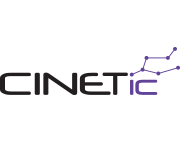RoDraCor: Challenges and Strategies in Building a Romanian Dramatic Corpus — KEYNOTE
Viorel-Ovio Olaru – Lecturer at the ”Lucian Blaga” University in Sibiu (RO)
Cristina Cojocaru Udrea – Faculty of Automatic Control and Computer Science at the National University of Science and Technology Politehnica Bucharest (UPB)
24 October 2025, 13:15, Sala Cinema UNATC (75-77 Matei Voievod Street)
RoDraCor: Challenges and Strategies in Building a Romanian Dramatic Corpus
The present contribution represents a general description of RoDraCor, the Romanian repository of dramatic works featured in the DraCor collection. The collection has been put together within the METRA project (“Measuring Tragedy: Geographical Diffusion, Comparative Morphology, and Computational Analysis of European Tragic Form”). The project has catalogued 1,350 Romanian-language plays up until this point, with a predicted doubling of this number until the end of the project. However, the seemingly large number of plays is not proportional to their availability and does not correlate with the state of current research in this field. This owes to the fact that a considerable number of plays, notwithstanding their popularity at the time of their performance, did not leave behind a traceable textual copy and, for reasons that we will delve into, are lesser known both to the general public and to Romanian literary historiography. Currently, the DraCor collection hosts only 30 plays; our presentation will present the major hurdles in making the plays available, among others the ambiguities of copyright legislation and the issues with tracing and digitizing physical copies. Ultimately, after overcoming all difficulties of logistics, one of the most daring tasks in making the current RoDraCor corpus available was the painstakingly minute tagging process, made difficult by several linguistic reforms that rendered the OCR especially faulty and unreliable, as well as different formatting issues, which rendered the conversion to the XML structure accepted by DraCor challenging. This lack of total uniformity required the implementation of heuristics, pattern recognition, and in some cases, manual intervention. Building on this corpus, our research advances a novel LLM-based approach to detect addressees, which allows for more expressive visualizations of social networks, with directed edges between characters.

Ovio Olaru is Assistant Professor of German and Norwegian Language and Literature with the Department of Anglo-American and German Studies at Lucian Blaga University of Sibiu. His fields of research include German, Romanian, and Scandinavian studies, as well as Comparative Literature. His PhD thesis on the Internationalization of Scandinavian Noir addresses the dynamics of popular culture by pursuing the global dissemination of Scandinavian crime fiction authors from a quantitative perspective. Most recently, his focus has shifted towards projects dealing with The Digital Archive of the Romanian Novel. He is also a translator of Scandinavian literature, having translated from Norwegian (Hanne Ørstavik, Linn Ullmann, Fredrik Brattberg), Icelandic (Sjón, Jon Kalman Stefansson), Swedish (Karolina Ramqvist), Danish (Olga Ravn, Christian Lollike), and Nynorsk (Jon Fosse’s Septology, as well as some of his plays). He co-edited Beyond the Iron Curtain. Revisiting the Literary System of Communist Romania (Berlin: Peter Lang, 2021) and The German Model in Romanian Culture (Berlin: Peter Lang, 2023).Latest contributions include “Branding Germanness in Transylvania. Combined and uneven heritagisation” (Routledge, 2026). He is currently part of the research project “Measuring Tragedy: Geographical Diffusion, Comparative Morphology, and Computational Analysis of European Tragic Form” (METRA – https://grants.ulbsibiu.ro/metra/)

Aura Cristina Udrea is a PhD candidate at the Faculty of Automatic Control and Computer Science at the National University of Science and Technology Politehnica Bucharest (UPB), conducting research in the field of Natural Language Processing. She has a multidisciplinary approach with expertise in linguistics and literature, as well as a significant interest in artificial intelligence. Her doctoral thesis investigates the differentiation of writing styles and the classification of literary microgenres in Romanian novels.
The keynote is part of the the second edition of the AI in Art Practices and Research international conference, organized by UNATC in Bucharest from 23–26 October 2025. The event explores the impact of AI on artistic creation and research, as well as its broader applications in society, such as accessibility, healthcare and well-being.





